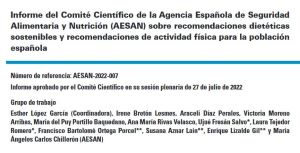“Bridging the Biological and Communication Sciences on Nutrients and Environmental Contaminants in Foods to Support Child Development” Virtual Workshop
By Odette Olivares, MSN, VRG volunteer
In this social media era where we can easily access a high amount of information, it is difficult to critically analyze every piece of information, especially those that belong to areas in which we are not knowledgeable. Additionally, properly communicating risks of food contaminants can be quite challenging for scientists, public health agents, and health professionals since people tend to underestimate risks and overestimate benefits. Periconception, pregnancy, lactation, and infancy are critical periods for brain development, future health, and growth. Therefore, it is of the utmost importance to have clarity on nutrition guidelines and contaminant risks during those life stages.
On February 9th and 10th 2023, the Eunice Kennedy Shriver National Institute of Child Health and Human Development (NICHD), the National Institutes of Health (NIH), and the U.S. Food and Drug Administration (FDA) hosted a two-day virtual workshop on research in risk communication, environmental contaminants in food, and the role of nutrition related to child development. This workshop supported the FDA’s Closer to Zero action plan, and their goal to reduce dietary exposure to arsenic, lead, cadmium, and mercury while maintaining access to foods that help to provide nutrients essential for child growth and development.
Conrad Choiniere, FDA Office of Analytics and Outreach director, explained that contaminants are naturally occurrent in soil, water, and air, but can also derive from human activity. For example, pollution can result in contamination. Fruits, vegetables, and grains can contain contaminants; despite this potential contamination, these foods are fundamental components of a healthy diet. Reducing these contaminants requires a multidisciplinary science-based approach and the joint effort of experts, researchers, nutritionists, and societies.
Intakes of magnesium, vitamin D, E, iron, and folate tend to be below the recommended levels in women’s diets prior to and during pregnancy. This is caused by poor food choices and could be solved by increasing the consumption of foods high in these nutrients. However, the increased consumption of nutritious foods could be accompanied by an increased risk of greater intake of contaminants.
Anna Siega-Riz, Dean and Professor in the Departments of Nutrition and Biostatistics, and Epidemiology, at the University of Massachusetts Amherst, talked about nutrient deficiencies in pregnant and lactating women and shared the FDA’s Total Diet Study Report results. This study focused on analyzing food samples and detecting heavy metals such as cadmium, lead, arsenic, and methylmercury.
The highest concentrations of cadmium are found in plant foods and it is present in most vegetable samples even if at low levels. Sunflower seeds, spinach, and lettuce were the plant foods with the highest cadmium concentrations. Lead was not detectable in 86% of food samples but was present in baby foods, sweet potatoes, teething biscuits, sandwich cookies, and white wine. The highest concentrations of arsenic and methylmercury were found in baked cod, canned tuna, fish sticks, baked salmon, and shrimp. Rice and rice products were also among foods with the highest arsenic concentrations.
Good nutrition helps to protect against the hazards associated with environmental contaminants such as lead, cadmium, arsenic, and methylmercury. Avoiding healthy foods because of fear of contaminants might cause more harm than good, so parents should prioritize including a wide variety of healthy foods to achieve U.S. Dietary Guidelines.

